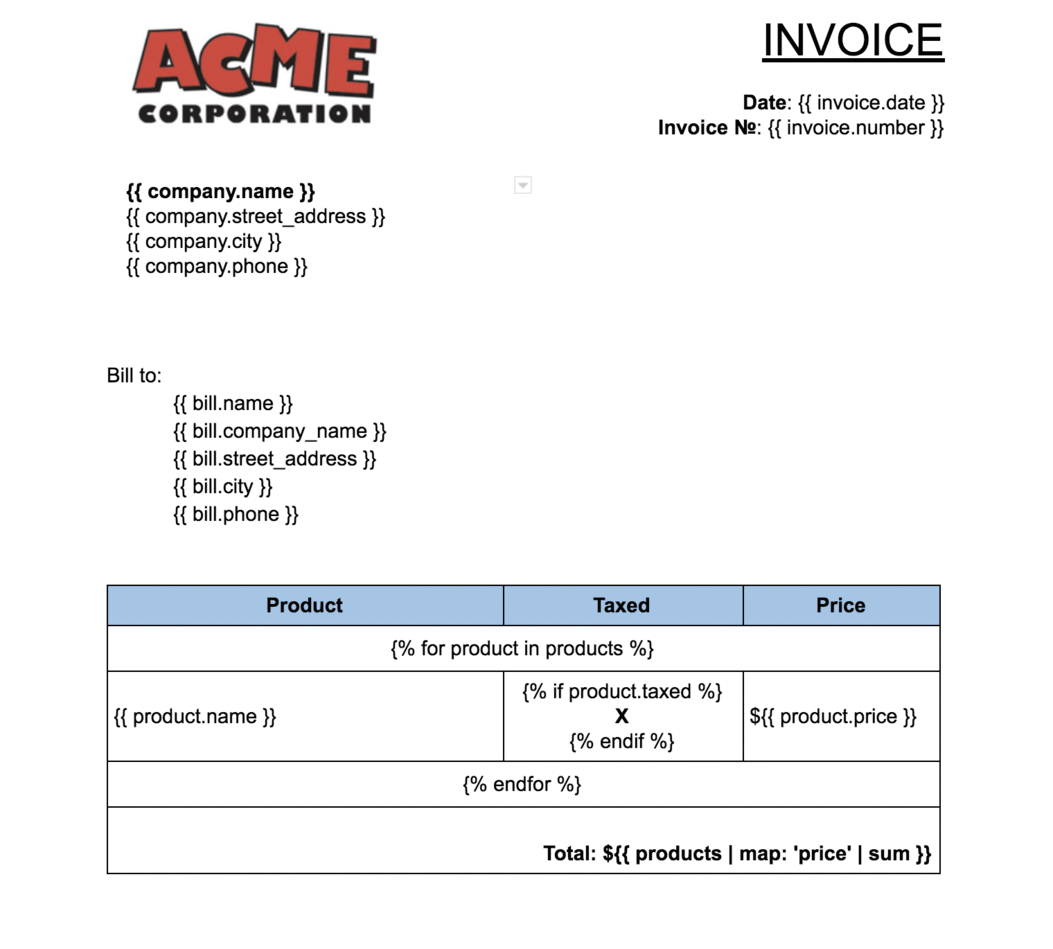Bring the power of Liquid template language to your documents!
Liquidoc gives you ability to easily create documents from templates.
Only .txt and .docx templates are currently supported.
Liquidoc is super-easy to use so even your customers can create their own templates.
Add this line to your application's Gemfile:
gem 'liquidoc'
And then execute:
$ bundle
Or install it yourself as:
$ gem install liquidoc
To get started you need to create a template:
require 'liquidoc'
template = Liquidoc.template('/path/to/file')Then you need a context, it is just a plain ruby hash:
context = { "name" => "Max", "hobby" => "Music" }Now you can create the final document:
template.render_to_file("/tmp/document_demo.docx", context)config/initializers/mime_types.rb
Mime::Type.register 'application/vnd.openxmlformats-officedocument.wordprocessingml.document', :docxapp/drops/invoice_drop.rb
class InvoiceDrop < Liquid::Drop
def initialize(invoice)
@invoice = invoice
end
def date
@invoice.date
end
# And you can just proxy every method call directly to invoice (may be dangerous!)
def before_method(method_name)
if @invoice.respond_to?(method_name)
@invoice.public_send(method_name)
else
"Unknown method: #{method_name}"
end
end
endapp/controllers/invoices_controller.rb
class InvoiceController < ApplicationController
def show
@invoice = Invoice.find(params[:id])
respond_to do |format|
format.html
format.docx {
template = Liquidoc.template(@invoice.template)
content = { 'invoice' => InvoiceDrop.new(@invoice) }
send_data template.render_to_string(content), filename: 'invoice.docx'
}
end
end
end- Fork it ( http://github.com/railscard/liquidoc/fork )
- Create your feature branch (
git checkout -b my-new-feature) - Commit your changes (
git commit -am 'Add some feature') - Push to the branch (
git push origin my-new-feature) - Create new Pull Request
